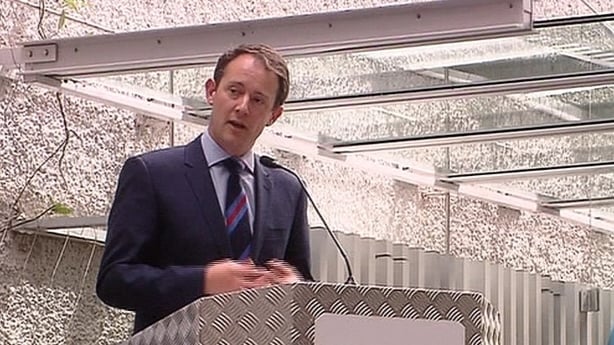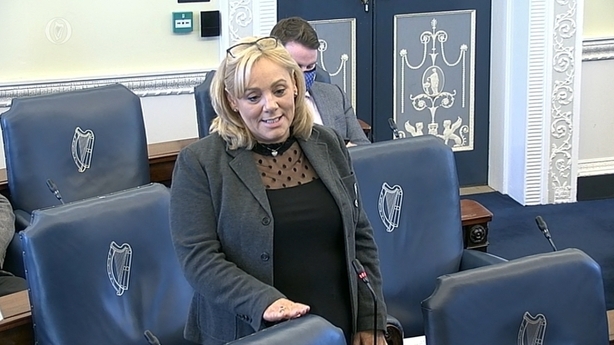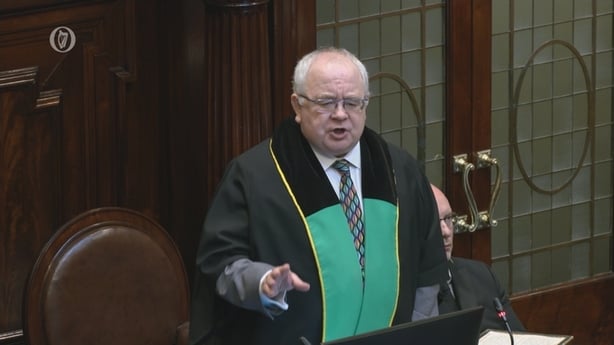
To listen to RTÉ.ie's radio and podcast services, you will need to disable any ad blocking extensions or whitelist this site.

0
00:00
00:00
Story Notes
The world of Irish politics has changed. There's more personal abuse and stress on public representatives - both inside and outside Leinster House.
One young politician described being physically sick at "the level of nastiness" directed at her. It’s feared this could damage Irish democracy by discouraging new candidates. If that is the case, what are the possible solutions?
The Summer of 2024 has seen the steady stream of abuse of Irish politicians, peak in death threats directed at Sinn Fein leader, Mary Lou McDonald and Taoiseach, Simon Harris.For that reason, in July, in an anonymous survey, RTÉ Documentary On One asked TDs and Senators about their mental well-being and the stress of the job.
This documentary reveals the results of that survey as well as speaking with those working in Leinster House, as politicians and political support staff.
In one question in the survey, for example, Oireachtas members were asked about their worries given "the increasing toxicity, coarseness and sometimes dangerous discourse around politics and politicians". Six replied that they felt it presented a "danger to their lives". The politicians’ other major concerns were around new technology and how it has made the job of a public representative more stressful.
For example, Sean Sherlock TD, speaks about how his father, Joe, who was also a TD:

"My father would go to his clinic, a letter would be written on behalf of a constituent. We'd wait for the letter to come back and you then engage with the constituent.There was a pace to it. Now someone will come back to me and say, 'I didn’t get a response to that email I sent you last night’. And I'm respectful, but I'd say, ‘Look, you have to give me a little bit of time’. But if that's happening every day of the week, that puts an awful lot of pressure, on TDs."
Another politician one who’s hoping to enter the Dáil, Senator Mary Seery-Kearney says new technology, in the form of social media is something she has to insulate herself from:

"My very first experience of social media was when I was running for the local elections. And I took a photograph of my supporters under a poster and I put it on Facebook because I was naive.
I just put it up without any limitations on geography or anything on that. And I had messages of, ‘If you come around here, we'll you knock on our door. We'll deal with you, we will sort you.’"
As a result of that experience and the increasing level of threats to politicians, Senator Seery-Kearney, recently had to talk to her elderly parents about what to do and who to contact in the event of protestors turning up at their door.
One man who has a particular interest in the health of our parliamentary democracy, Ceann Comhairle, Seán Ó Fearghail, says, in the documentary, that the Oireachtas has tried to improve things for politicians.
"We have set up a system whereby every TD and Senator in the country can engage with the local Garda crime prevention officer. We have a 54-item report produced by [former Garda Commissioner] Noreen O'Sullivan and her Forum on Safe Participation, which is being worked on by officials from every government department.

Everybody who deals with public representatives is trying to address this security issue.
But this sort of thing is happening to people in all walks of life - people in the arts, people in business, people in sporting organizations. Nobody's immune from this coarsening in public debate.We have, a crude, vindictive sort of dialogue among certain sections of Irish society that don't feel they're under a moral obligation to behave responsibly. They can behave just as they see fit for as long as they're able to get away with it."
He says the social media companies are key to changing the nature of that discourse.In our survey of Senators and TDs, the most consistent result, was that they thought that their staff are negatively-impacted by the change in the nature of communication around Irish politics.One such staff member, parliamentary assistant, Michael Dooley, who’s in his mid-20’s, says that, every day, he and his colleagues are swamped with negative messages from the public.
"Sometimes you need a break from the emails and the socials.
You read over and over and over again, some of this rhetoric - extreme hatred or abuse, like "you're all scumbags"; you have countless people calling you "criminal". Criminals of different natures.Yeah, it's hard to read. You’re trying to do an honest day's work and just being constantly bombarded with this messaging.It might be from America. It might be from England. We can't verify where these people live, but just having to witness it constantly, no matter how confident you are, it's always going to have an effect."
Irish democracy is not the only one facing such challenges.
A recent BBC documentary on the British political system details the pressures on MPs in Westminster. (Two of their colleagues, Jo Cox and David Amess were both murdered in recent years). The producer of the BBC programme speaks about the various measures suggested and tried around the world to protect the mental well-being of politicians.
He has spoken to campaigners for parliamentary reform who make the point that their work is not just about preserving the mental wellbeing of those currently serving but to make sure that younger people, particularly women, see being a public representative as a viable career.
Narrated and produced by Ronan Kelly.
RTÉ Documentary On One: Nastiness was first broadcast on Saturday, September 14th 2024.
An Irish radio documentary from RTÉ Radio 1, Ireland - Documentary on One - the home of Irish radio documentaries
Story Credits

